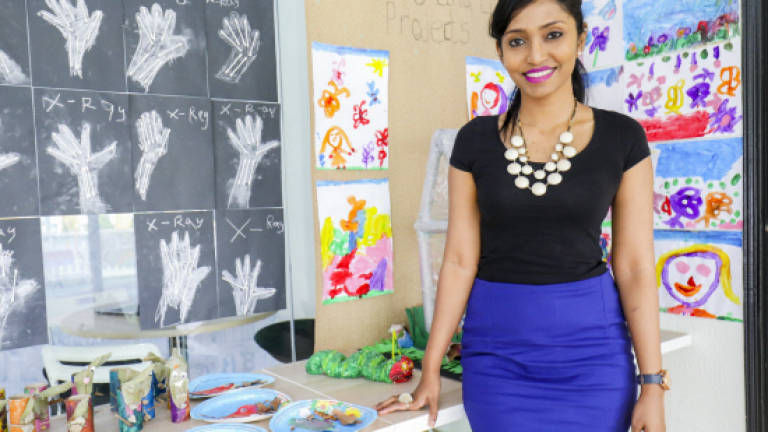Learning to speak up

WE WANT our children to see the good in people but, at the same time, we also want them to be wary of those who mean to do them harm.
Clinical psychologist Puveshini Rao recently held a workshop at the Safari Kid International Preschool & Kindergarten in Bangsar, Kuala Lumpur, where she helped parents tell the difference between safe and dangerous situations for their children.
Puveshini has worked with survivors of domestic violence, providing para-counselling and social work. She has also provided training for first-line responders and members of the public on the psychological and physical cost of violence against women and children.
Prior to this workshop, she has had held similar sessions for some support groups on Facebook.
During one such talk on Stranger Danger, Puveshini said a lot of women came forward and spoke about being sexually abused as a child.
Through these conversations, Puveshini realised they were on the right path when it came to conceptualising a talk on this topic.
She said: “I am also a trainer, and so I do my talks like an interactive-style training. I get them to talk about their fears, then guide them through that.
“We talk about what they should be doing, what they should not be doing, and what they should be aware of.
“I usually work around the idea of not instilling fear, but instilling confidence.”
Puveshini explained that when she was a child, her parents would tell her things like not to take candy from strangers, and not to get into a car with a stranger.
“When we talk about danger, we refer to something external – people we don’t know, who are not familiar to the child.
“But actually, research has shown that children are more in danger from people they do know.
“When you talk about physical abuse, we found that 80% of abusers are usually the parents. [And] sexual abuse is usually by people the child knows.
“Sexual grooming is done over time by people [the child] trusts, and people who are supposed to be ‘safe’.”
Rather than focus on determining if an individual is safe to be around, she tries to determine if the situation the child is in is safe or not.
“[It] does not matter if the child knows or does not know the person, but there are certain situations that [make them feel endangered], but they don’t know how to say it.”
Very often, children are told to be respectful to elders, and when they feel uncomfortable about something, they are afraid their parents will scold them.
There have been several high profile cases of sexual abuse in which the child was too afraid to tell their parents about it, because the person abusing them was not only well-known in the community, but also highly respected by the parents.
Puveshini also disapproves of parents forcing a child to hug or kiss someone they obviously don’t want to.
“It is like telling a child indirectly they have no control over their own body. They cannot decide who they want to hug or kiss.
“It has been normalised in our culture, where children are told to hug and kiss someone by their parents, and predators use that.”
She added that it is hard for a child to come and explain that a person touched them inappropriately after that.
“I have a problem with ‘good touch’ and ‘bad touch’ which we normally teach children,” said Puveshsini, referring to one of the more popular methods of explaining how to identify molestation.
If a person touches you in the area that is usually covered by a swimsuit, it is considered a ‘bad touch’.
“The problem with that, especially when it comes to sexual grooming, is that the predators start by touching all the ‘good’ parts, like the hands. They (the sexual predator) slowly build trust.”
To the child, if the parents trust this person, then it is okay for the child to do so as well.
“Because the trust has been built over time, it makes it harder for the child to come out and say what had happened.”
Sadly, abused children often blame themselves for what has taken place.
Puveshini added that working with the parents is also a big challenge.
“Sometimes, it is not only about the child or the sexual predator. It is more about the parents themselves, how they act as parents, and how they communicate with their children.
“I have noticed with some parents, they themselves have a lot of unresolved issues.”
She said these issues are carried into their parenting methods, and the parents are often anxious and angry.
“So when their children tell them that someone has done something to them, the parents react in an explosive manner.
“They exclaim: ‘Why were you there? When did this happen?’
“When you have these kinds of explosive [reactions], children have a good reason to not approach their parents, because they will be scolded anyway. “
Our prevalent victim shaming culture is also a hindrance. A child can pick up on this from the parents when they talk about other people.
That’s why, Puveshini feels that educating parents is just as important as educating children to prevent sexual exploitation.